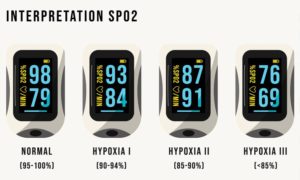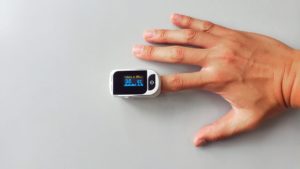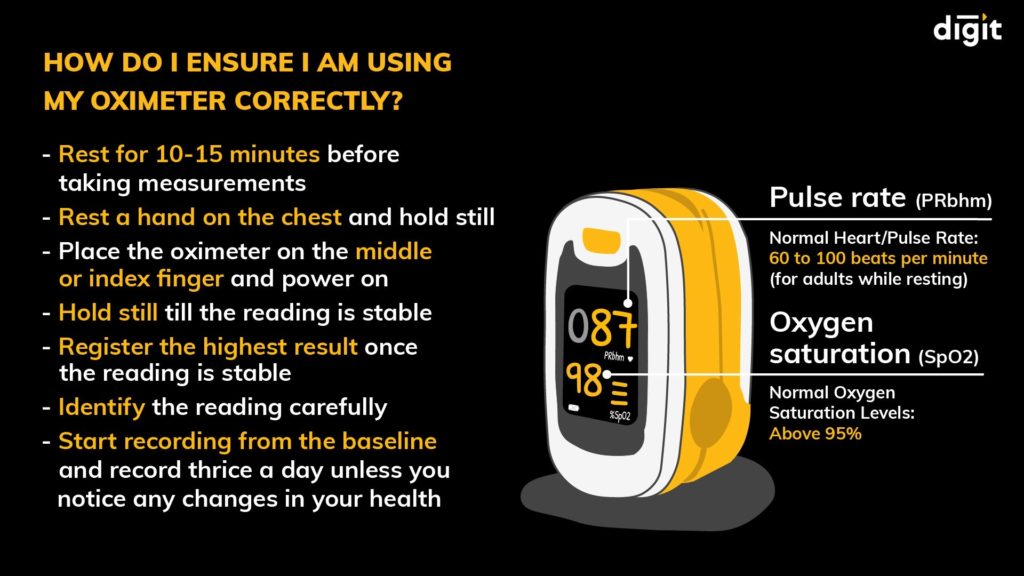Those who have visited Roseman University’s Nevada and Utah campuses may have felt the impacts of elevation. Our South Jordan campus sits at 4400 feet above sea level, Henderson at 1867, and Summerlin at 3500. Pressure in the atmosphere decreases as one gains elevation, and the volume of air breathed contains less oxygen in each breath. For many people, these changes are negligible, and not even noticed. For others, even subtle changes in elevation can be felt.
Oxygen is our lifeblood – almost all living things need it to survive. Oxygen gives our cells the ability to break down food to create energy, it powers our brains which need a lot of energy to function, and it circulates in our bloodstream to power our organs and body tissues. Oxygen deprivation for just 5 minutes can cause the brain cells to die, resulting in brain damage.
But what happens to our bodies with prolonged, more subtle declines in our blood oxygen levels?
 Hypoxia, low levels of oxygen in our blood, can be very dangerous and cause damage over time. There are multiple causes of hypoxemia, namely sleep apnea, chronic obstructive pulmonary disease, anemia, congenital heart defects, interstitial lung disease and asthma.
Hypoxia, low levels of oxygen in our blood, can be very dangerous and cause damage over time. There are multiple causes of hypoxemia, namely sleep apnea, chronic obstructive pulmonary disease, anemia, congenital heart defects, interstitial lung disease and asthma.
When our blood oxygen levels dip below normal levels (95%+) we may feel drowsy or sluggish. We might see skin color changes, experience confusion, rapid heart rate, shortness of breath, slow heart rate, sweating, wheezing and coughing. Hypoxemia can lead to low oxygen in the tissues, which is hypoxia, a much more acute and life-threatening event.
 Sleep apnea affects 100 million people, with men more susceptible than women, and age and obesity as risk factors. Sleep apnea can lead to oxygen desaturation – a significant decrease in blood oxygen levels. Apnea can cause a person’s oxygen to drop by 3-4% and in severe cases, much more dramatically. Those who wake with headaches or gasping for breath may want to consider purchasing a pulse oximeter. These inexpensive devices measure 02 levels from simply inserting a finger into the device for a few seconds. Painless and inexpensive, pulse oximeters are an important part of a household medicine cabinet as they allow tracking of 02 levels while awake, sleeping or when someone is sick in the house (02 levels can drop during times of common respiratory infections).
Sleep apnea affects 100 million people, with men more susceptible than women, and age and obesity as risk factors. Sleep apnea can lead to oxygen desaturation – a significant decrease in blood oxygen levels. Apnea can cause a person’s oxygen to drop by 3-4% and in severe cases, much more dramatically. Those who wake with headaches or gasping for breath may want to consider purchasing a pulse oximeter. These inexpensive devices measure 02 levels from simply inserting a finger into the device for a few seconds. Painless and inexpensive, pulse oximeters are an important part of a household medicine cabinet as they allow tracking of 02 levels while awake, sleeping or when someone is sick in the house (02 levels can drop during times of common respiratory infections).
Consult with your RMG primary care provider if you suspect your oxygen levels are low during daytime or overnight hours. They may refer you to a pulmonologist, cardiologist or to a sleep disorders specialist.



